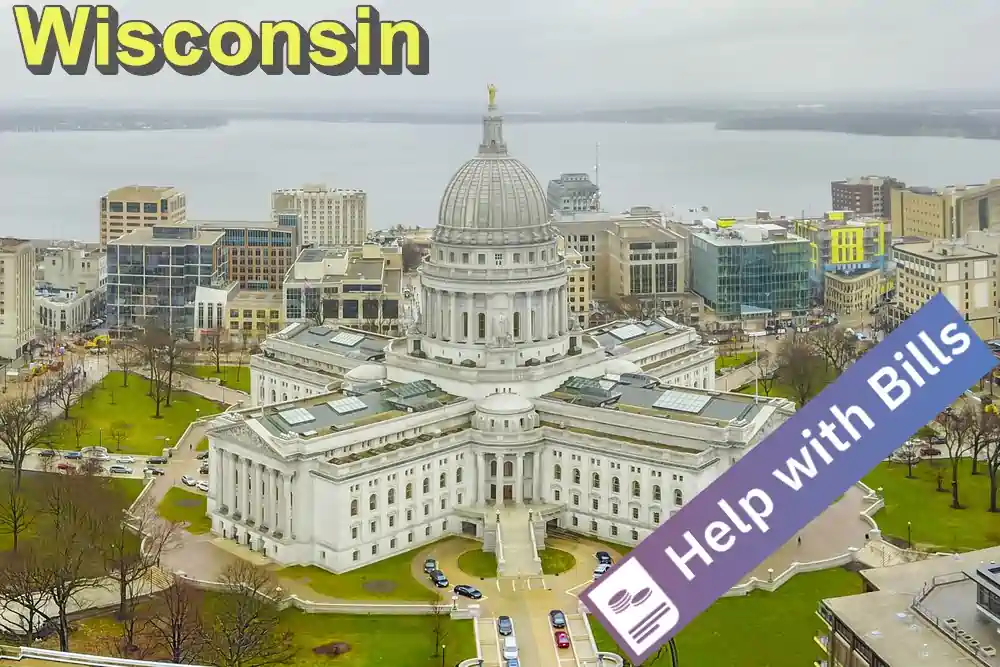Help with Bills in Wisconsin
Last Updated on December 22, 2022 by Meghan
Wisconsin is known for various accomplishments, tourist attractions and overall economic endeavours.However,it’s consistently an uphill battle for single mothers to find assistance when it comes to paying their bills. To make things a little easier for them, this article has rounded up programs in the state that aim to help low-income people pay their utility bills.
Help with Electric Bills
Housing Cost Reduction Initiative Utility Payment Program: This program’s main objective is to erase utility debts, so if you’ve face financial hardships that have led you to miss a couple of payments, you may contact them and they will help you get rid of your overdue payments. Seeing how convenient this benefit is, the demand is quiet high so you’d have to be patient once you’ve applied. Here’s their website: https://liheapch.acf.hhs.gov/Utility/WI/we.htm
Help with Heating Bills
Keep Wisconsin Cool Warm Fund: Keep Wisconsin Cool Warm Fund is a charity organization with the purpose to alleviate the burden of harsh weather conditions on low-earning individuals. People who will benefit greatly from this are old-aged citizens and families or individuals with really young children like single mothers. What’s outstanding about this program is that it doesn’t just providing heating assistance but cooling is included in the package. It’s able to finance this entire operation with donations from the government, public and private companies, as well as citizens who volunteer to donate. More on them may be found here: https://www.mge.com/about-mge/in-our-community/keep-wisconsin-warm-cool-fund
Madison Gas and Electric: When it comes to assistance, the government and other organizations aren’t the only ones pulling strings, because the Madison Gas and Electric project was launched and created with donations from the energy fund. These donations were made by regular citizens looking to join forces to ensure every resident has access to affordable fuel. The project collects these donations and distributes them to eligible people all over the state. Get more details here: https://www.mge.com/customer-service/payment-and-billing/energy-assistance
- Child Support in New Jersey
- Grants for Single Mothers in New York
- Help with Bills in Nevada
- Grants for Single Mothers in San Francisco
- The Hope Program for Single Mothers
- Child Support in South Carolina
- Child Support in Michigan
- Scholarships and Student Grants for Single Mothers in Alabama
- Help with Bills in Washington
- Grants for Single Mothers in Vermont
Help with Clothing
Salvation Army Thrift and Family Store: One of the many things that the Salvation Army fully understands is that clothing is a luxury when you’re having a hard time affording other basic needs. For this reason, they run a thrift shop for low-income people and in addition to that they also have a free clothing section to tend to really low-earning people. Single moms can take advantage of this to find appropriate clothing for each season for herself and her kids. https://www.salvationarmydcareastores.org/
Help with Food and Meals
The Emergency Food Assistance Program (TEFAP): The TEFAP provides food supplies to food pantries and preparing points so that eligible people can get food supplies that haven’t been prepared or fully prepared meals from designated sites. It’s not so be confused with the food Nutrition Supplement Program though. Eligible households will be assisted with groceries only if they are eligible, that is they earn less than 300% of the line of poverty as stated by the federal government. The food supply consists of canned foods, veggies, macaroni and cereals. Visit their site for more information: https://www.fns.usda.gov/tefap/emergency-food-assistance-program
Help with Healthcare and Medical Bills
Wisconsin MedicalAid: The Wisconsin MedicalAid was initially intended for the older population over the age of 65, however it’s also suited for single moms because it covers children under the age of 18. Under this scheme, a number of medical needs are covered, but for instances that are regarded as “not necessary”. The medicalaid will not cover. Furthermore, eligibility depends on the combined household income after taxes and also the number of people living in the house with the applicant. Generally, the following people will automatically be eligible:
- You’re currently pregnant
- You are the legal guardian of a child who is 18 years or younger
- You’re over the age of 65
- You’re disabled or a family member in your home is disabled
- You’re blind
https://www.benefits.gov/benefit/1646







